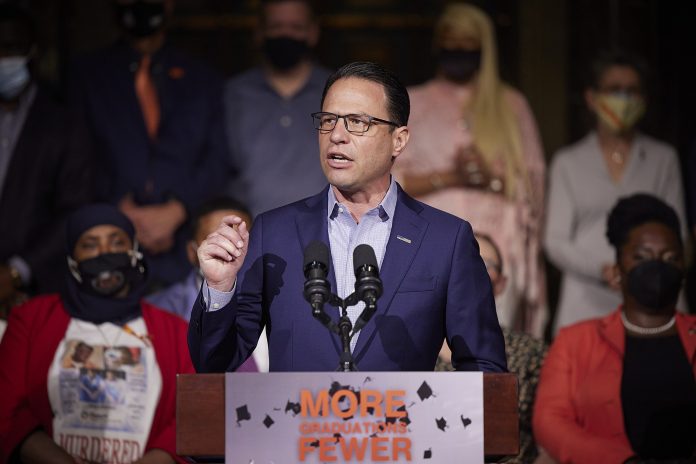Loosened eligibility requirements will soon expire alongside the federal COVID-19 dollars
(The Center Square) – While senators on both sides of the aisle worry about the future of public assistance programs in Pennsylvania, the reforms under consideration seem unlikely to win each other over – even in the fresh era of cooperation ushered in by Democratic Gov. Josh Shapiro.
Still, optimism abounds. Sen. Dave Argall, R-Pottsville, told The Center Square his renewed effort to strengthen oversight of the Supplemental Nutrition Assistance Program and Medical Assistance may see new prospects with Shapiro in charge.
“We need to ensure taxpayer assistance is going to those in true need – not to fraudsters or dead people,” he said.
That’s why he sponsored a series of proposals to beef up staffing in the Office of Inspector General to process more fraud claims and revamp eligibility verification for both programs.
More specifically, Senate Bill 241 would institute a pilot program to increase OSIG staffing by 50% for a minimum of two years. After one year, the agency would report back to committees on the number of investigations addressed, cost savings realized, and how many tips were left unaddressed.
The measures Argall proposed in Senate bills 243, 244 and 245 would require the Department of Human Services to check death certificates monthly and wage records quarterly against SNAP and MA beneficiaries.
It would also ensure Human Services adheres to the Public Assistance Integrity Act by keeping more thorough records on the impact lottery winnings have on program eligibility. Prizes worth more than $600 can, in some cases, disqualify a beneficiary.
“Regardless if you are a Republican or Democrat, everyone should agree that precious taxpayer dollars budgeted for Human Services assistance programs should be allocated to those who truly need the assistance,” Argall said in a co-sponsorship memo distributed in January.
Except, Argall’s colleagues across the aisle – bolstered by former Democratic Gov. Tom Wolf – have historically criticized Republicans’ efforts to tighten public assistance programs as tone deaf at best.
“We believe there are sufficient safeguards in place to prevent welfare fraud already,” said Savannah Thorpe, spokeswoman for Senate Minority Leader Jay Costa, D-Pittsburgh. “We have gone down this path with the GOP before and it’s been a waste of time.”
At least 1.8 million residents received food stamps in Pennsylvania in 2022, including an additional 420,000 that found themselves eligible after the federal pandemic expansion. The enhanced benefits also swelledMedicaid’s rolls to 3.1 million.
The loosened eligibility requirements, however, will soon expire alongside the federal COVID-19 dollars that funded it, forcing as many as 1.2 million residents off a so-called “hunger cliff.”
“At a time when Pennsylvania families are facing rising costs, we need to be working to deliver support and resources, not restricting them,” Thorpe said.
Sen. Maria Collet, D-North Wales, told The Center Square that as the proportion of residents struggling to make ends meet grows, so too must the state’s commitment to public assistance.
“Making sure these and all Pennsylvanians have the tools they need to keep roofs over their families’ heads and food on the table must remain our number one priority,” she said.
A November report from The Center Square found that state government projected to spend $4.9 billion on SNAP benefits alone through the end of 2022, in addition to the $5.2 billion appropriated in the 2020-21 budget cycle.
In 2019, the state spent just $2.5 billion on SNAP benefits. Although it’s a federal program funded through Congress, the administration costs are split with the states.
That’s why lawmakers should ensure the programs support residents who actually qualify, according to Argall, and why the OSIG should receive more support to make sure that happens.
In an interview with The Center Square, Argall said additional staffing would support more full-time investigators in field offices, assist caseworkers with questionable applications, and address more tips from the public.
Originally published by the Center Square. Republished with permission.
For more from Budget & Tax News.
For more public policy from The Heartland Institute.











